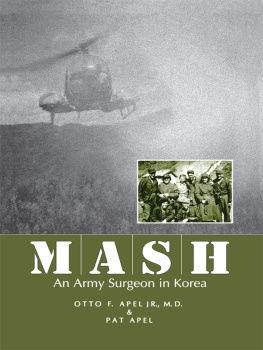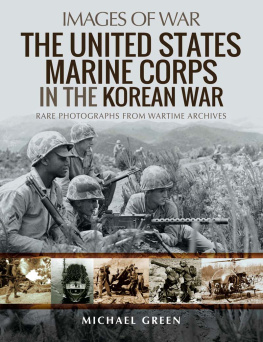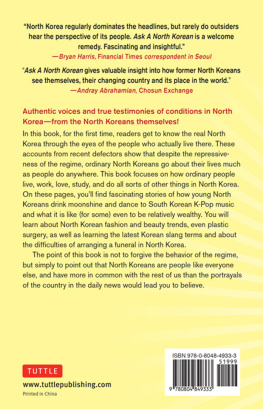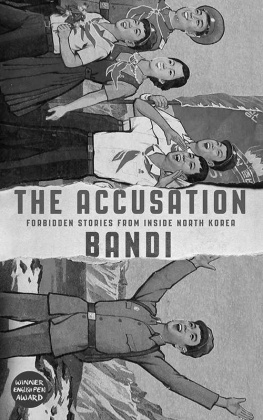MASH

Copyright 1998 by The University Press of Kentucky
Scholarly publisher for the Commonwealth, serving Bellarmine University, Berea College, Centre College of Kentucky, Eastern Kentucky University, The Filson Historical Society, Georgetown College, Kentucky Historical Society, Kentucky State University, Morehead State University, Murray State University, Northern Kentucky University, Transylvania University, University of Kentucky, University of Louisville, and Western Kentucky University.
All rights reserved.
Editorial and Sales Offices: The University Press of Kentucky
663 South Limestone Street, Lexington, Kentucky 40508-4008
www.kentuckypress.com
12 11 10 09 08 8 7 6 5 4
Library of Congress Cataloging-in-Publication Data
Apel, Otto F., 1923
Mash: an army surgeon in Korea / Otto F. Apel and Pat Apel.
p. cm.
Includes bibliographical references and index.
ISBN-10: 0-8131-2070-5 (hard cover : alk. paper)
1. Apel, Otto F., 1923 . 2. Korean War, 19501953Personal narratives,
American. 3. Korean War, 19501953Medical careUnited States. 4. Mobile hospitalsKorea (South). 5. United States. ArmySurgeonsBiography.
I. Apel, Pat, 1948 II. Title.
DS921.6.A58 1998
951.904'2'092dc21 98-15170
ISBN-13: 978-0-8131-2070-6 (hard cover : alk. paper)
This book is printed on acid-free recycled paper meeting the requirements of the American National Standard for Permanence in Paper for Printed Library Materials.

Manufactured in the United States of America.

Member of the Association of
American University Presses
For Jeep, the young patron of the playing field, and Matt, the Airborne Ranger, our beloved of the next generation.
May they never have to do this.
CONTENTS
PREFACE
One great irony of warfare is that the more humanity increases its proficiency to inflict injury upon human beingsthrough technology, tactics, and psychological manipulationthe more humanity must advance its capability to deliver emergency medical care to the swelling number of casualties.
The Korean War, 1950-53, was a significant point in that great tension between the destruction of armies and the preservation of individual lives. The designation police action, given facetiously by President Harry S. Truman in response to a reporters question, does not begin to describe the commitment and heroism and ferocity and sacrifice of all who participated in the rugged war on the Korean Peninsula nearly fifty years ago. Young Americans grappled with Chinese and North Koreans in the toe-to-toe, slug-it-out grind of the jagged Korean mountains. The climate for this donnybrook vacillated from a dusty, stifling, sticky heat to penetrating subzero temperatures that froze everything from automotive fluids to the stubble on the soldiers chin.
The first of the three years of the war showcased the high mobility characteristic of later American involvement in Vietnam and the Persian Gulf. On June 25, 1950, the North Koreans blitzed across the thirty-eighth parallel into South Korea and pushed through the South Korean capital of Seoul. American troops, withdrawn from Korea by 1948 and stationed in Japan, came to the aid of the soldiers of the Republic of Korea (ROKs). The North Korean armor and infantry columns steamrollered south until the Americans and the ROKs dug in their heels for a last-ditch defense in a large semicircle around the port city of Pusan on the southern tip of the Korean peninsula. Backs to the sea, the Americans and the ROKs held their ground. That defensive position came to be known as the Pusan Perimeter.
General Douglas MacArthur, commander of U.S. forces in the Far East, responded with a controversial plan to flank the North Koreans. On September 15, 1950, not quite three months after the initial invasion, U.S. and ROK air, naval, and land forces executed MacArthurs gamble with an amphibious invasion at the coastal city of Inchon, near Seoul, just below the thirty-eighth parallel, the dividing line between North and South Korea. The invasion forces thrust inland behind the North Koreans and threatened the supply lines and the North Korean troops advancing through South Korea toward Pusan. The North Koreans retreated northward with the Americans and the South Koreans in hot pursuit.
The war, now a United Nations action, was carried into North Korea. With the United Nations forces approaching the Yalu River, which marks the border between China and North Korea, the Chinese moved into North Korea at the end of October 1950 and made preparations in their staging areas without being noticed by the United Nations troops. Then, surprising nearly everyone, the Chinese attacked the United Nations forces with unexpected savagery. The war once again scrambled south. With the influx of American and United Nations troops, the Chinese invasion was stifled and the Chinese were expelled from South Korea. A deadlock developed near the thirty-eighth parallel, the boundary established between North and South Korea at the end of World War II. After the first year to eighteen months, the war settled into a stalemate of infantry struggles and massive artillery duels over the rugged ridgelines of central Korea.
The battles of the Korean War have been etched into American military history. The Pusan Perimeter, the Chosin Reservoir, the Punch Bowl, Bloody Ridge, Heartbreak Ridge, Old Baldy, Pork Chop Hill, and the names of countless other ridges and valleys stained with the blood of our young soldiers are now among the bywords of American bravery.
American casualties in Korea were very heavy: 33,629 killed in action and 103,284 wounded in action. Overall, the American death toll from all causes has been placed as high as 55,000.
This memoir is about war, but it addresses a different aspect of war: the struggle of men and women in the U.S. Army who were called upon to expend their efforts and their lives preserving human life during this vicious combat. Most Americans are familiar with the term M*A*S*H from the popular film and television series, which began in the 1970s. The Mobile Army Surgical Hospital (MASH), designed to provide immediate emergency surgical care to the wounded, was first used in Korea and persisted in its original form approximately two years before its mission was changed to reflect the changing tactical situation.
How did the U.S. medical personnel perform in providing this immediate surgical care to the soldiers? Through the movie and the television series, most Americans are also familiar with the portrayal of the irreverent attitudes of the doctors and nurses of the MASH units in Korea. My personal experience confirms that many of the attitudes of the doctors and nurses in the MASH were indeed irreverent. In fact, several of the episodes of the television series were based upon events that occurred in the 8076th MASH during my stay there in 1951-52.
A distinct series of occurrences after World War II created an environment that gave rise to those attitudes. By the very nature of the MASH, its doctors and nurses were separated physically from the military medical community. Beyond that, the military unpreparedness of the army, the lack of training and regimentation of the doctors and nurses drafted for the Korean War, the mobility of the units, and the intensity of the combat separated the doctors and nurses in the MASH units physically and philosophically from the established military medical community. The doctors and nurses of the MASH units were not acculturated into the military medical community and therefore did not share the traditions, customs, and attitudes of the army. Consequently, their attitudes were sometimes considered irreverent.










